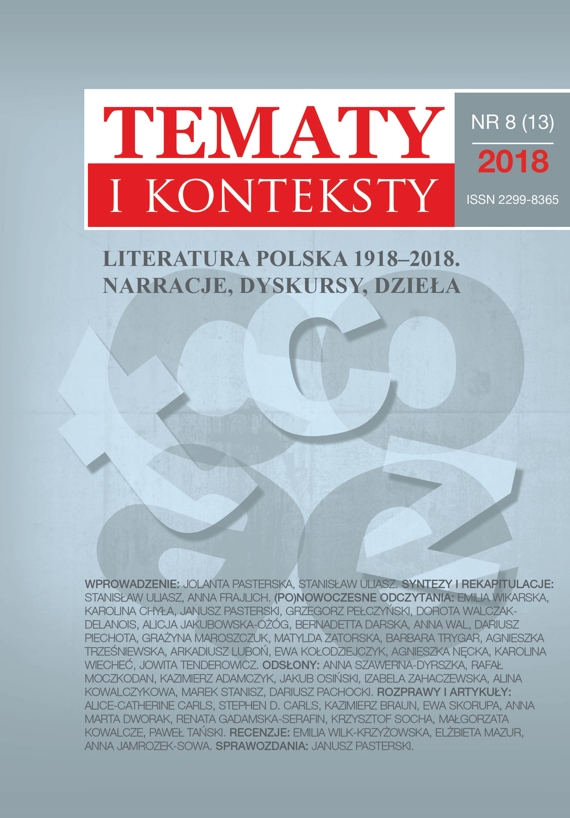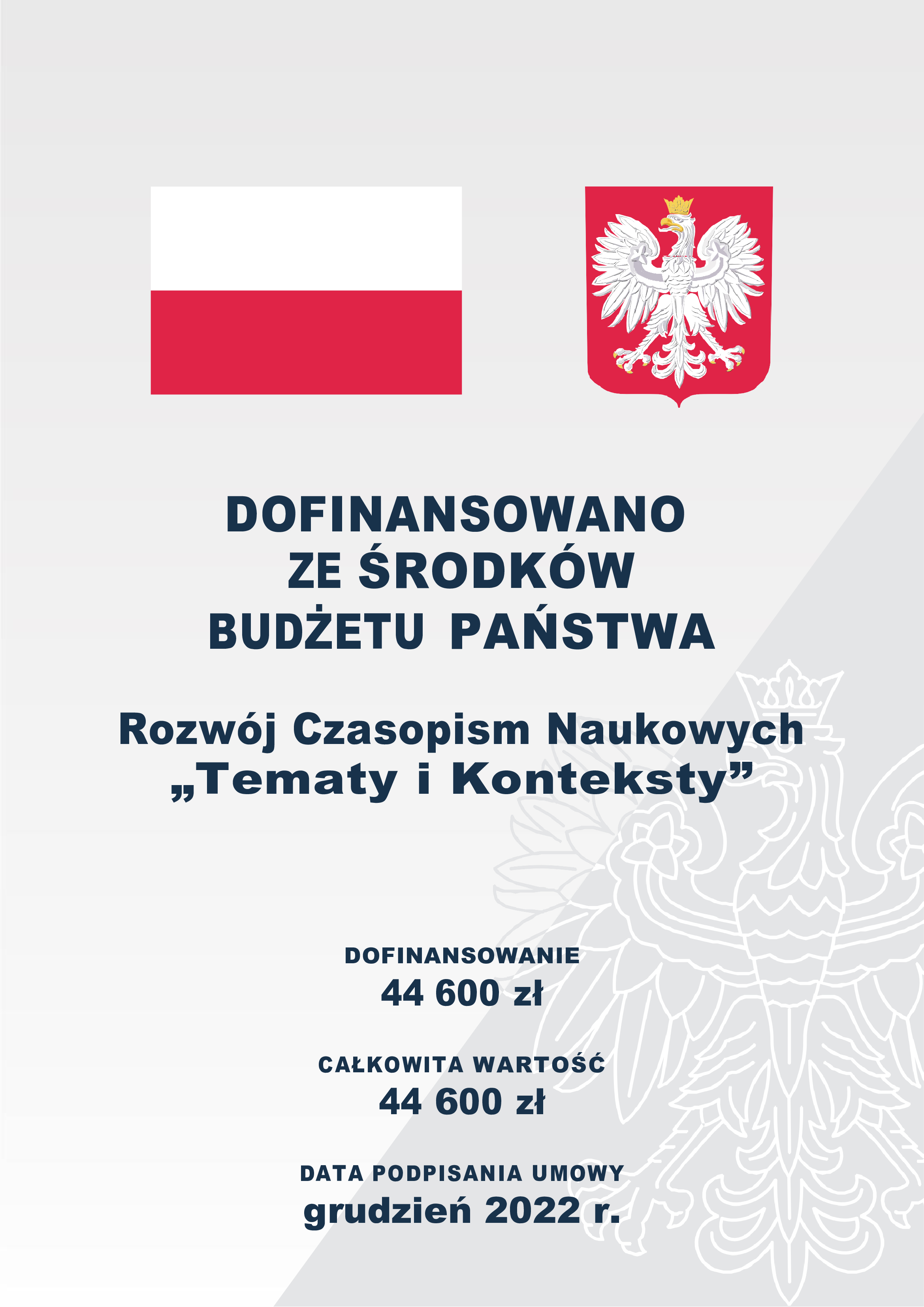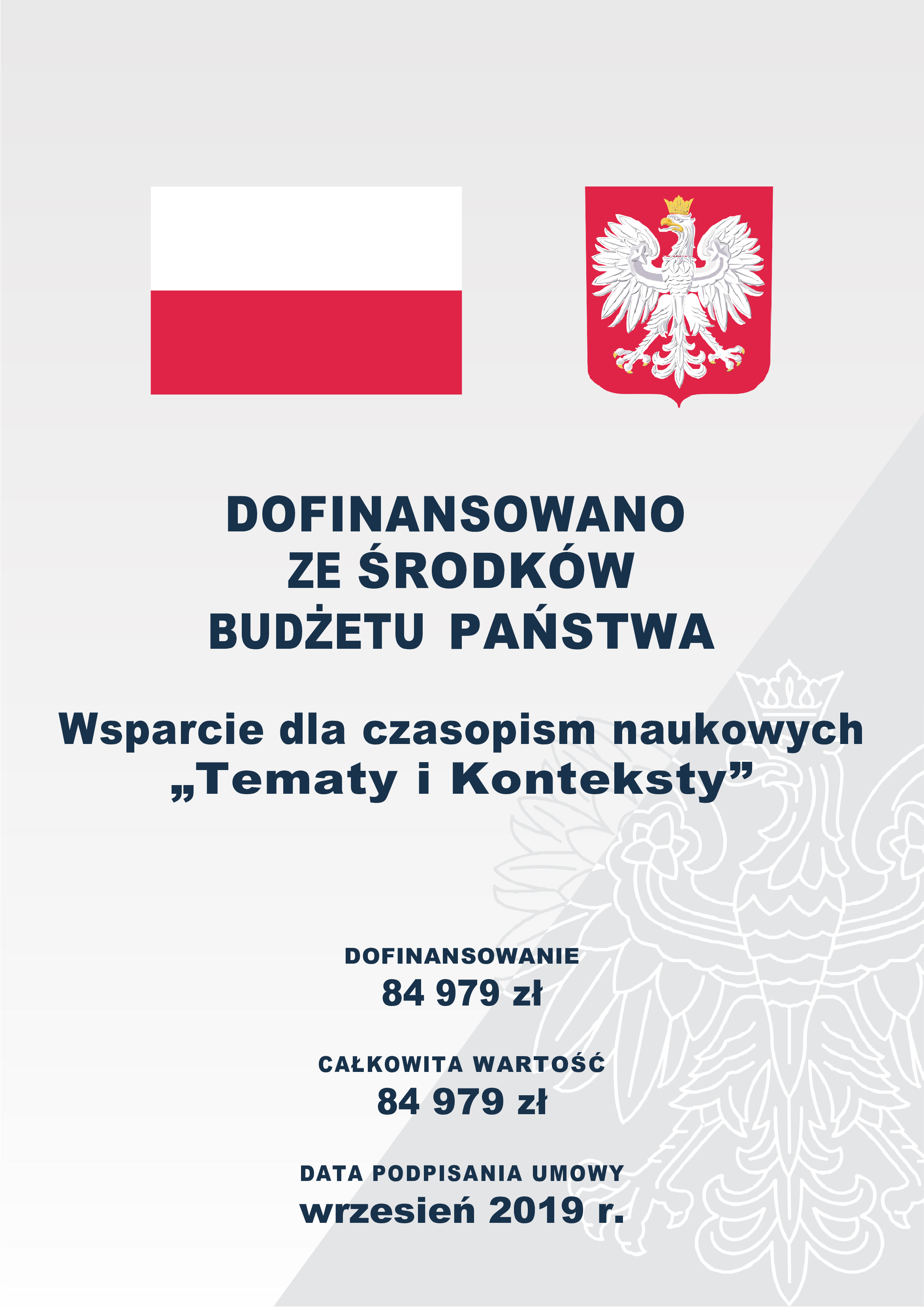Gothic Healing under the Mediterranean Sun: The Magus by John Fowles as a Gothic Novel
DOI:
https://doi.org/10.15584/tik.2018.34Keywords:
outcast, emotional handicap, psychic make-up, illusion, GothicAbstract
The present paper aims at interpreting the novel The Magus by John Fowles within the framework of the Gothic genre. The argument shall be founded on a close analysis of chosen characteristics of the Gothic convention which can be identified within the text, such as the theatricality, the motif of insanity, as well as the issue of repressed sexuality. It shall also be argued that the novel presents the therapeutic role of fear, intrinsically linked to the Gothic mode of expression. The boundary between the rational and the irrational is suspended to the point that the protagonist is unable to tell whether the apparitions he sees in the Magus’s shadowy estate are of supernatural provenance or they constitute mere figments of his imagination deluded by the elements of the Mediterranean ambience. Remarkably, it is the experience of terror that ultimately heals Nicholas, an embittered and disillusioned young man, from the state of apathy and emotional handicap.
Downloads
References
Armitt, Lucie, History of the Gothic: Twentieth-Century Gothic, Cardiff: University of Wales Press, 2011.
Behind The Magus, London: Colophon Press, 1994.
Belville, Maria, Gothic-postmodernism. Voicing the Terrors of Postmodernity, Amsterdam: Rodopi, 2009.
Burke, Edmund, Philosophical Enquiry into the origin of our Ideas of the Sublime and Beautiful, ed. J. T. Bolton, London: Routledge, 1958.
Byron G., D. Townshend, The Gothic World, London: Routledge, 2013.
Carlson, Eric W. (ed.), A Companion to Poe Studies, Westport: Greenwood Press, 1996.
Enns, Carolyn Zerbe, Archetypes and Gender: Goddesses, Warriors and Psychological Health, “Journal of Counselling & Development”, Vol. 73, 2011, 127–133.
Fowles, John, The Magus, New York: Dell Publishing, 1985.
Franz, Marie-Louise, The Process of Individuation, in: Man and His Symbols, ed. Carl Gustav Jung. New York: Anchor Press, 1964.
Hogle, Jerrold E., The Gothic Ghost of the Counterfeit and the Progress of Abjection, in: A Companion to the Gothic, ed. David Punter. Oxford: Blackwell, 2000.
Ichim, Ofelia, Dramatic Elements in Two Novels by Mircea Eliade and John Fowles, “Philologica Jassyensia”, An. II, No. 1, 2006, 129–134. Print.
Jung, Carl Gustav, Man and his Symbols, New York: Anchor Press, 1964.
Kelsey, Morton T., Myth, History and Faith. The Re-mythologizing of Christianity, New York: Paulist Press, 1974. Print.
McDaniel, Ellen, The Magus: Fowles’s Tarot Quest, “Journal of Modern Literature”, No. 8.2, 1980–81, 247–260. Print.
Smith, Andrew, Gothic Literature, Edinburgh: Edinburgh University Press, 2013.
Spooner, Catherine,Contemporary Gothic, London: Reaktion Books, 2006.
Wiseman, Boris, Portrait of a Therapist as a Shaman, “The European Journal of Psychotherapy, Counselling & Health”, Vol 2, No. 1, 1999, 41–53.
Downloads
Published
How to Cite
Issue
Section
License
Copyright (c) 2018 Tematy i Konteksty

This work is licensed under a Creative Commons Attribution-NonCommercial-NoDerivatives 4.0 International License.




